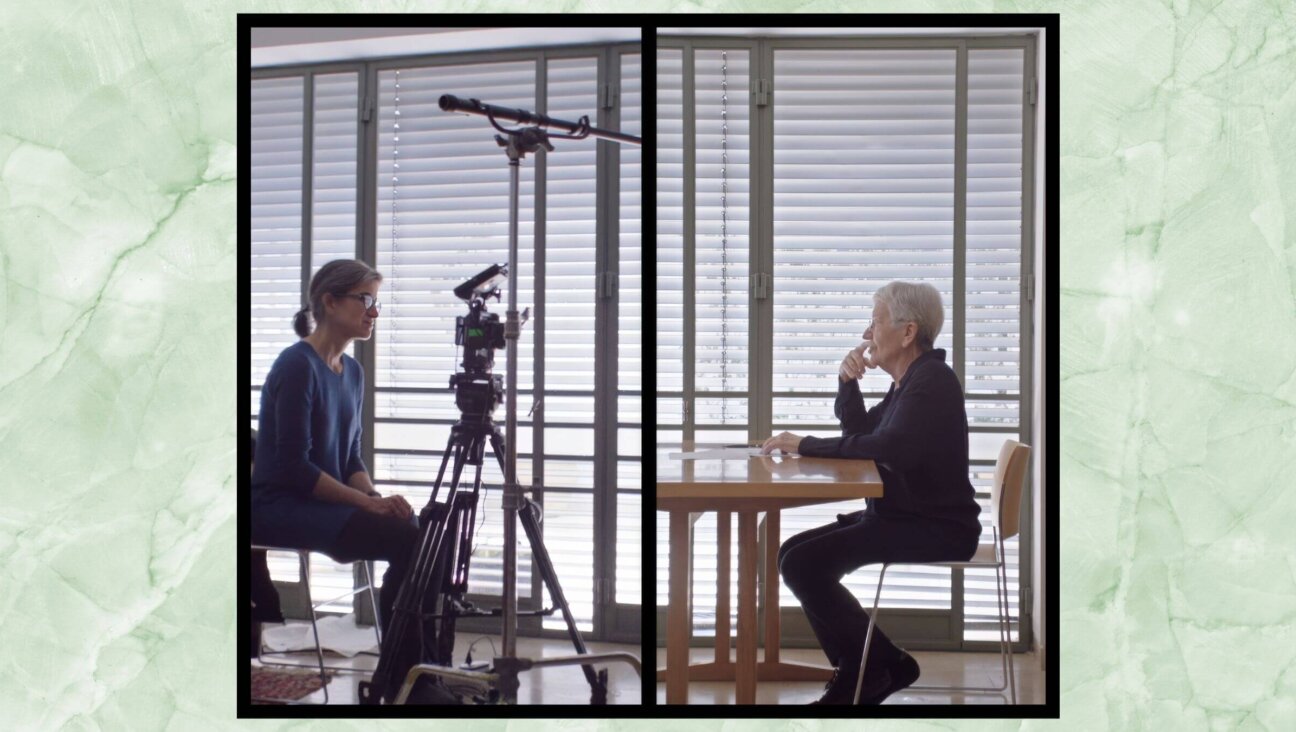Will Birthright Kowtow To Israel’s Right-wing Government?

Graphic by Angelie Zaslavsky
This summer, I planned to travel to Israel through Birthright, an organization that offers free 10-day trips to the country for Jewish youths. I had long been looking forward to the voyage.
Now, I don’t know whether I’ll be allowed on the trip.
I meet all of Birthright’s requirements, and then some; my parents are Jewish, and I attended a conservative synagogue growing up where I had my Bat Mitzvah. I visited Israel once, but never on an organized trip. I’m active in the Stanford Hillel and deeply engaged with the conversation about Israel and with Israel advocacy on campus.
So what’s the catch? I am a strong supporter of the two-state solution as the only way to secure Israel’s future as the democratic homeland of the Jewish people and to guarantee the rights of the Palestinian people. I see the occupation and the entrenchment and expansion of the settlement movement as a threat to these principles. Because of this, I make the personal choice not to buy products manufactured in Israeli settlements in the West Bank.
According to a new law, this position means that I could potentially be banned from entering Israel. Earlier this year, the Israeli Knesset passed a piece of legislation banning entry to the country of foreign nationals who call for economic, cultural or academic boycotts of either Israel or the territory it controls beyond the Green Line.
The extent of this law and its enforcement remain unclear. But many pro-Israel American Jews are worried that, thanks to our political beliefs, we may no longer be welcome in Israel. That is why over 500 pro-Israel students of different political affiliations and backgrounds have written an open letter to Birthright urging for clarification on this deeply uncertain and important issue.
As a Jewish organization committed to taking young adults of Jewish background to Israel to explore their religious and cultural heritage, has Birthright discussed this new law with the Israeli government? Will Birthright trips screen applicants to ensure compliance with this law? Will students be checked to see that we adhere to a political ideology?
There are many Jewish young people like me at Stanford and across the country who are excited about exploring Israel, but who also find ourselves in opposition to the country’s settlement policy and deeply concerned about the ongoing occupation. We are not alone. According to a 2016 poll of American Jewish voters, 78 percent would like to see Israel limit or halt settlement expansion.
I actively oppose the BDS movement for failing to recognize Israel’s right to exist and for erasing boundaries between Israel and the Palestinian Territories. Indeed, I’ve spent significant time on campus working with our J Street chapter to fight divestment proposals at Stanford.
But this legislation does nothing to effectively oppose the BDS Movement. On the contrary – by treating what happens in the occupied territory as no different than Israel inside the Green Line, this bill plays directly into the hands of the Global BDS Movement. By eroding Israeli democracy, it further isolates and harms the country that I care for so deeply. These are all reasons why major mainstream American Jewish organizations like the Anti-Defamation League and the American Jewish Committee have publicly opposed this bill.
The increasing isolation caused by the bill could impact Birthright as well. If the organization chooses not to begin to screen applicants based on our views and decisions about the settlements, it could potentially violate Israeli law, with serious monetary and political implications. If it chooses to restrict applicants, it weakens its own mission and shuns American Jews like me.
Regardless of its own choice, I hope that Birthright will recognize that this law will increase apprehension among potential attendees and deter many from applying. Over the past few years, Birthright has changed rules and relaxed some of its earlier standards in an effort to counter declining registration. College students in the process of formulating our political beliefs and convictions do not want to face a political litmus test when we travel to learn. To avoid an even greater crisis, Birthright should clarify where it stands on this legislation. The Israeli government should know that this law could cause young Jews to avoid traveling to Israel.
Birthright must ensure that young pro-Israel, anti-occupation American Jews like me know if we are still welcome on their program – and welcome in Israel.
More than just my summer travel plans are on the line here. Israel’s future — and the future of the American Jewish relationship with Israel — hang in the balance.
Rachael Stryer is a senior at Stanford University and Co-Chair of J Street U Stanford.





















